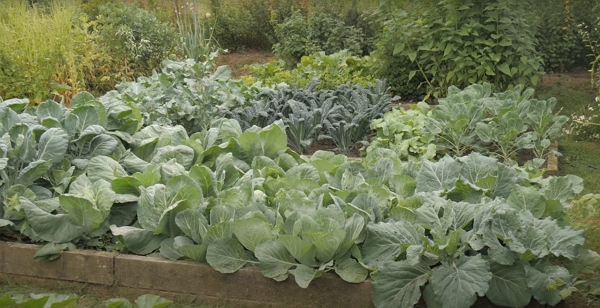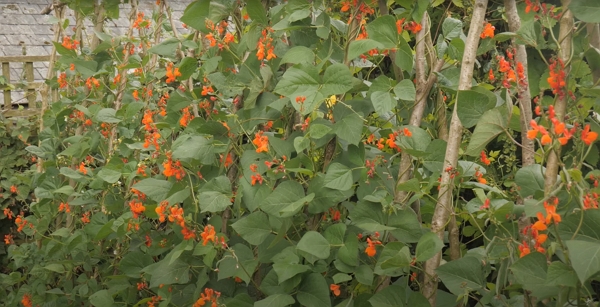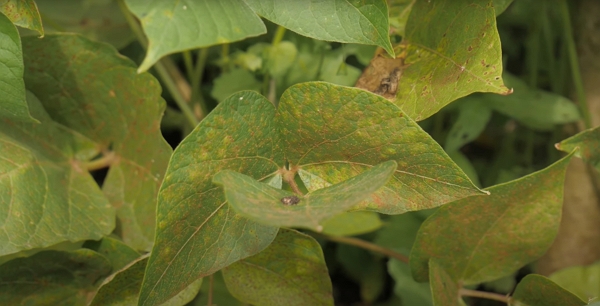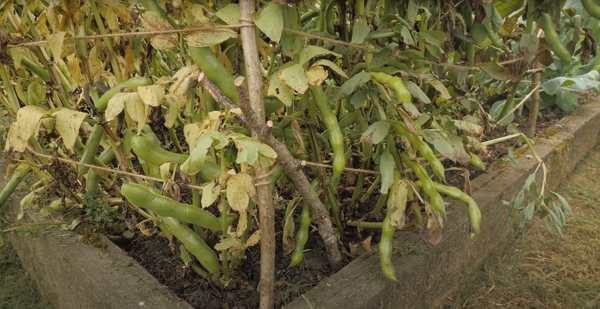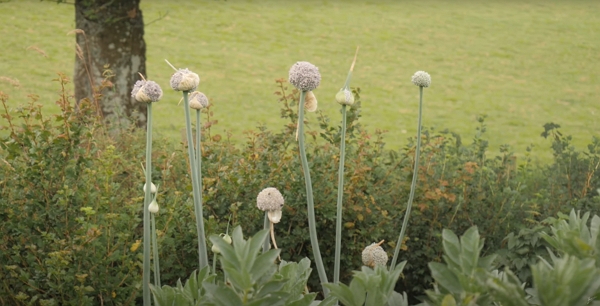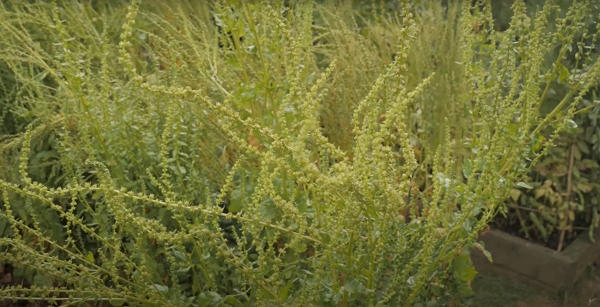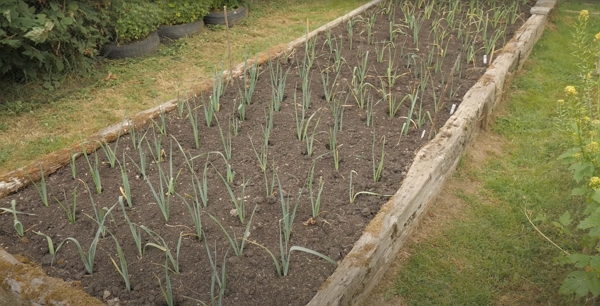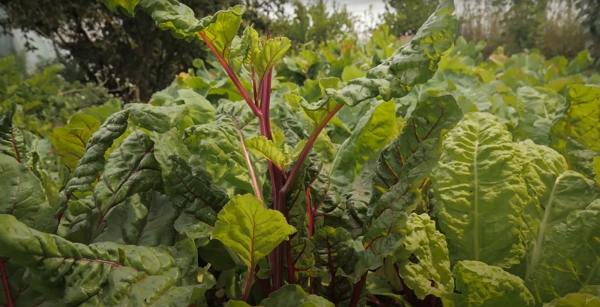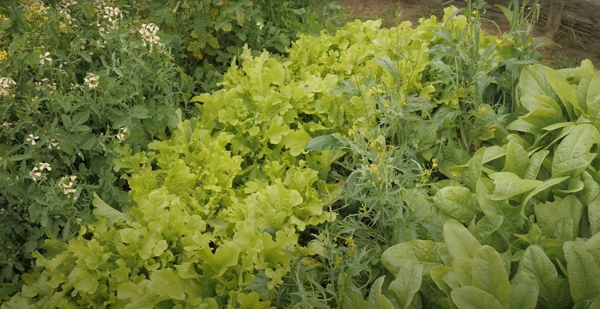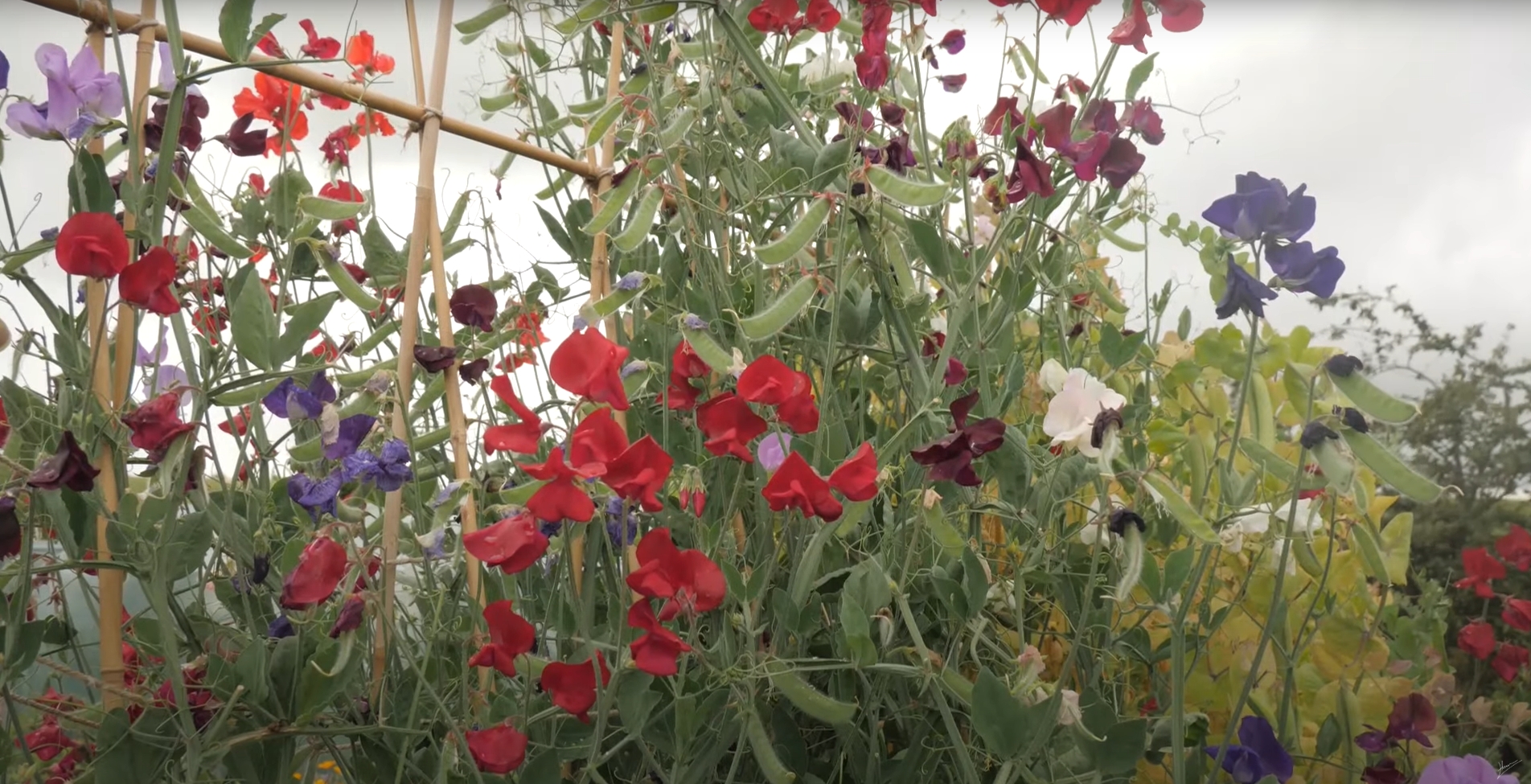The garden produces a lot around midsummer. Let’s look at what Huw has to share.
Thanks to Huw Richards for sharing his wisdom and knowledge! I wrote the following notes watching the video published on Huw Richards’s channel.
You can watch it using this YouTube link.
Onions
Growing onions from seed is pretty hard.
Huw transplanted the seedlings early April, two weeks after sowing.
Brassicaceae
You should mix long-term and short-term varieties so you can free up space in your beds when you can remove the short-term ones.
Dedicate a bed for long-term varieties.
Why does Huw not net the Brassicaceae?
He finds it ugly.
But, if you want to protect the plants from the pest, Huw has experienced the case where a bird will still get under the mesh and get stuck…
If you go away for some time, then nobody will check up daily on the net.
Huw checks every 2 to 3 days the plants for cabbage white caterpillars.
Squash
They need warm weather and a long period of temperatures around 15 °C won’t help them.
Beans
If you’re in a climate like the UK, you can have rust on the leaves and for small plants, it can become a problem for their growth.
Broad beans
They don’t like the damp and cool weather. Rust will infect the plants in such weather.
Saving seeds
It’s a important job to become self-sufficient to grow your own crops.
In July, you can get leak and spinach seeds.
Beetroot
Huw transplants them around that time of the summer.
Leaks
Huw transplants them around that time of the summer.
They usually replace the cabbage like kale.
Wildlife and pollinators
If it happens that you have a nest of bumble bees, preserve it!
It’s so beneficial to the garden.
A bumble bee’s nest is usually found in the ground. So watch out before you tramp it…
Swiss chard
They need watering otherwise they will bolt after 3 to 4 weeks of dry weather.
What does bolting mean in vegetables?
Bolting is the term applied to vegetable crops when they prematurely run to seed, usually making them unusable. A cold spell or changes in day length initiates this behavior.
Source: www.rhs.org.uk
You can still use the leaves.
Salads
Lettuce will bolt easily.
However, Huw talked about a variety well known in Asia that doesn’t bolt as easily. I will put the name here once I get the answer from him in the vlog.
Sweet peas
Huw loves the fragrance of the sweet pea flowers in the early evening.
And pollinators will love the bed where they’re planted.
Polytunnel in July
At this time of the year, you will find that the jungle is on!
You can plant tomatoes under the polytunnel.
Personally, I grow them without any protection. This year 2022, I haven’t taken care of them and the drought this past summer was really too hard to keep up with the watering.
What else
The end of July and early August is not only the time of harvest, but also the time to perform a well-planned succession of crops to get the most of the same area.
Also, you shouldn’t worry too much about crops rotation because it will save you a lot of hassle.
It might not be true to all the gardens. You will need to find what works best for you.
I have tomatoes in the same bed for eight years.
I have planted potatoes randomly (basically, where I had space) and I have very likely planted in the same place again. This year, we even had volunteered potato plants from an area where we had some last year.
